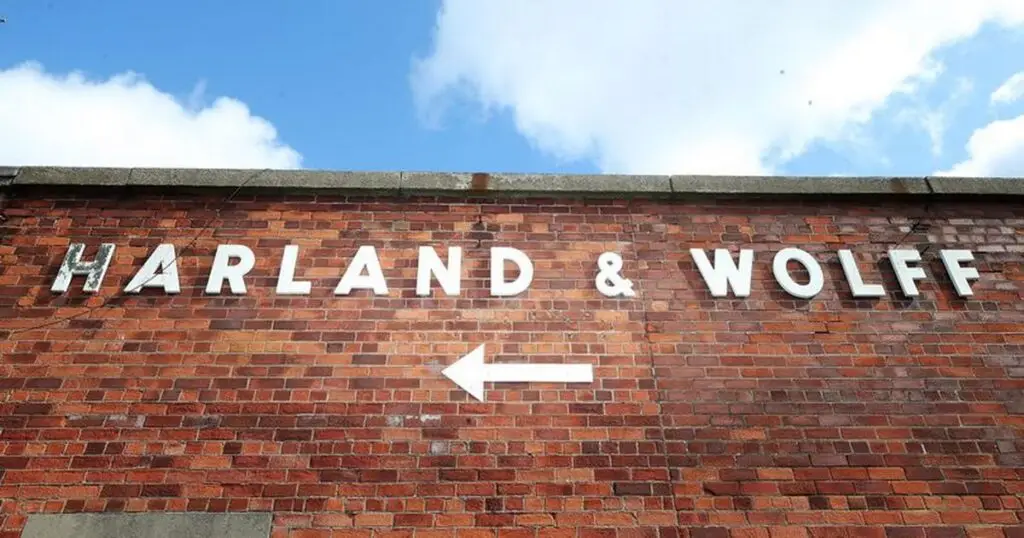Harland & Wolff, the beleaguered shipyard in Belfast, has declared insolvency, casting significant uncertainty over its future as a London-listed entity. This development threatens employment at its UK facilities and key defence contracts.
The shipyard, which has a workforce of 1,500, announced steps to reduce staff in its ‘non-core’ operations and certain ‘central support areas,’ a decision communicated to employees earlier today. Administrators from Teneo are likely to be appointed this week, while Rothschild and Co have been engaged to explore strategic options amid interest from several potential buyers. Potential bidders include Babcock, Spain’s Navantia, and the former CEO John Wood, according to reports by City AM.
The board has informed shareholders that they are unlikely to receive any return from the administration process, which is slated to commence imminently. While the company’s core operations and its Islandmagee Gas Storage project will continue unaffected, several non-core subsidiaries are being wound down. This situation puts at risk a vital £1.6 billion Ministry of Defence contract to construct warships for the Royal Navy, raising substantial concerns about the future of the UK’s shipbuilding industry. There is a possibility that British Royal Navy warships might be constructed overseas, potentially in Spain.
Despite the insolvency, Harland & Wolff remains hopeful, stating there is a ‘credible pathway’ to fulfil the contract and expecting bids for its four shipyards soon. Interim chairman Russell Downs commented, ‘The group faces a very challenging time given the overhang of significant historic losses and its failure to secure long-term financing. Good progress has been made to test the market for investor appetite.’ Downs further added, ‘The Board has reluctantly concluded that the Company’s own future as an AIM-listed company will likely come to an end in the near future, but that the core operations undertaken by the four yards and Islandmagee will continue to trade as usual.’
Union representatives and government officials have both weighed in on the matter. Matt Roberts, the national officer of the GMB Union, expressed serious concerns, ‘Workers, their families and whole communities now face their lives being thrown into chaos due to chronic failures in industrial strategy and corporate mismanagement.’ He stressed the necessity of retaining all four Harland & Wolff yards for future capabilities in sectors like renewables and shipbuilding. A government spokesperson stated, ‘While we know this will be a concerning time for those affected, Harland & Wolff has been clear this process will in no way affect jobs at its shipyards or core operations such as delivering its contracts for the Ministry of Defence.’ The spokesperson further mentioned that a market-based solution is preferred to avoid risking taxpayer money, highlighting ongoing efforts to find an outcome that supports shipbuilding and manufacturing across the UK while safeguarding jobs.
The future of Harland & Wolff remains precarious, with significant implications for its workforce and the UK’s shipbuilding capabilities. The company’s insolvency and the potential loss of a major Ministry of Defence contract underscore the critical need for effective industrial strategies and sound corporate governance.


